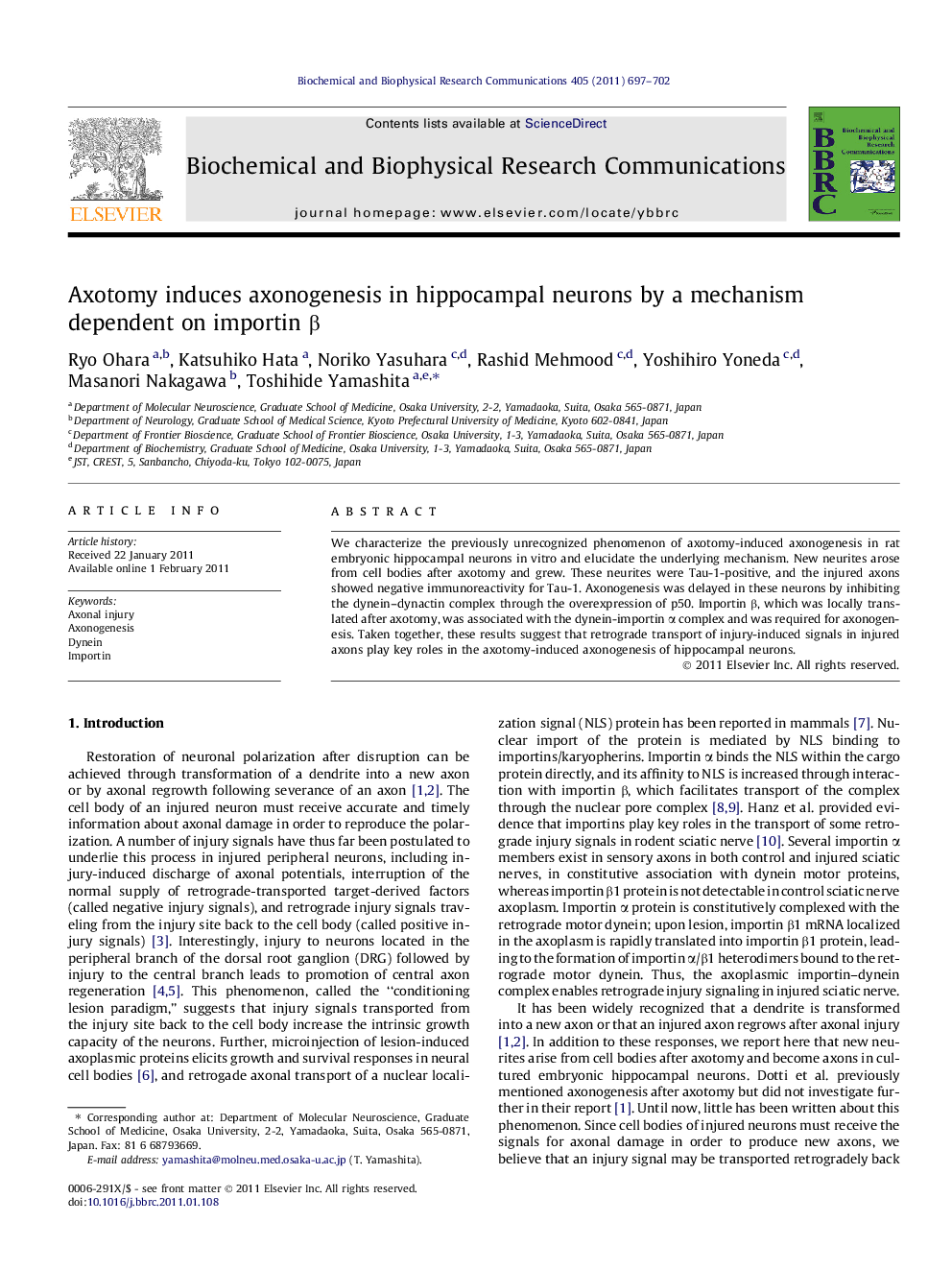| Article ID | Journal | Published Year | Pages | File Type |
|---|---|---|---|---|
| 1931183 | Biochemical and Biophysical Research Communications | 2011 | 6 Pages |
We characterize the previously unrecognized phenomenon of axotomy-induced axonogenesis in rat embryonic hippocampal neurons in vitro and elucidate the underlying mechanism. New neurites arose from cell bodies after axotomy and grew. These neurites were Tau-1-positive, and the injured axons showed negative immunoreactivity for Tau-1. Axonogenesis was delayed in these neurons by inhibiting the dynein–dynactin complex through the overexpression of p50. Importin β, which was locally translated after axotomy, was associated with the dynein-importin α complex and was required for axonogenesis. Taken together, these results suggest that retrograde transport of injury-induced signals in injured axons play key roles in the axotomy-induced axonogenesis of hippocampal neurons.
Research highlights► Axotomy induces axonogenesis of hippocampal neurons. ► Retrograde transport through dynein–dynactin complex is required for axonogenesis. ► Importin β is involved in axotomy-induced axonogenesis.
